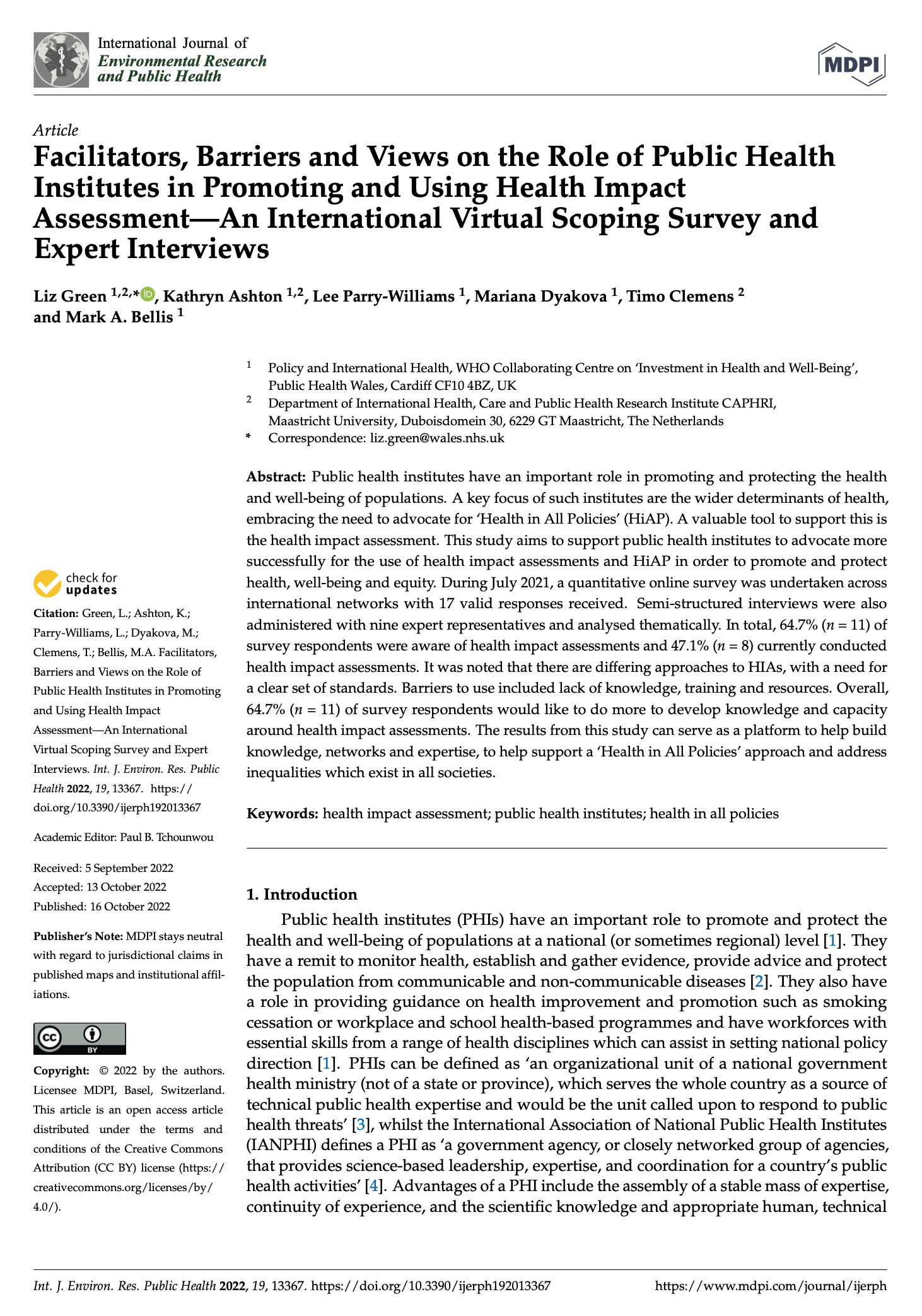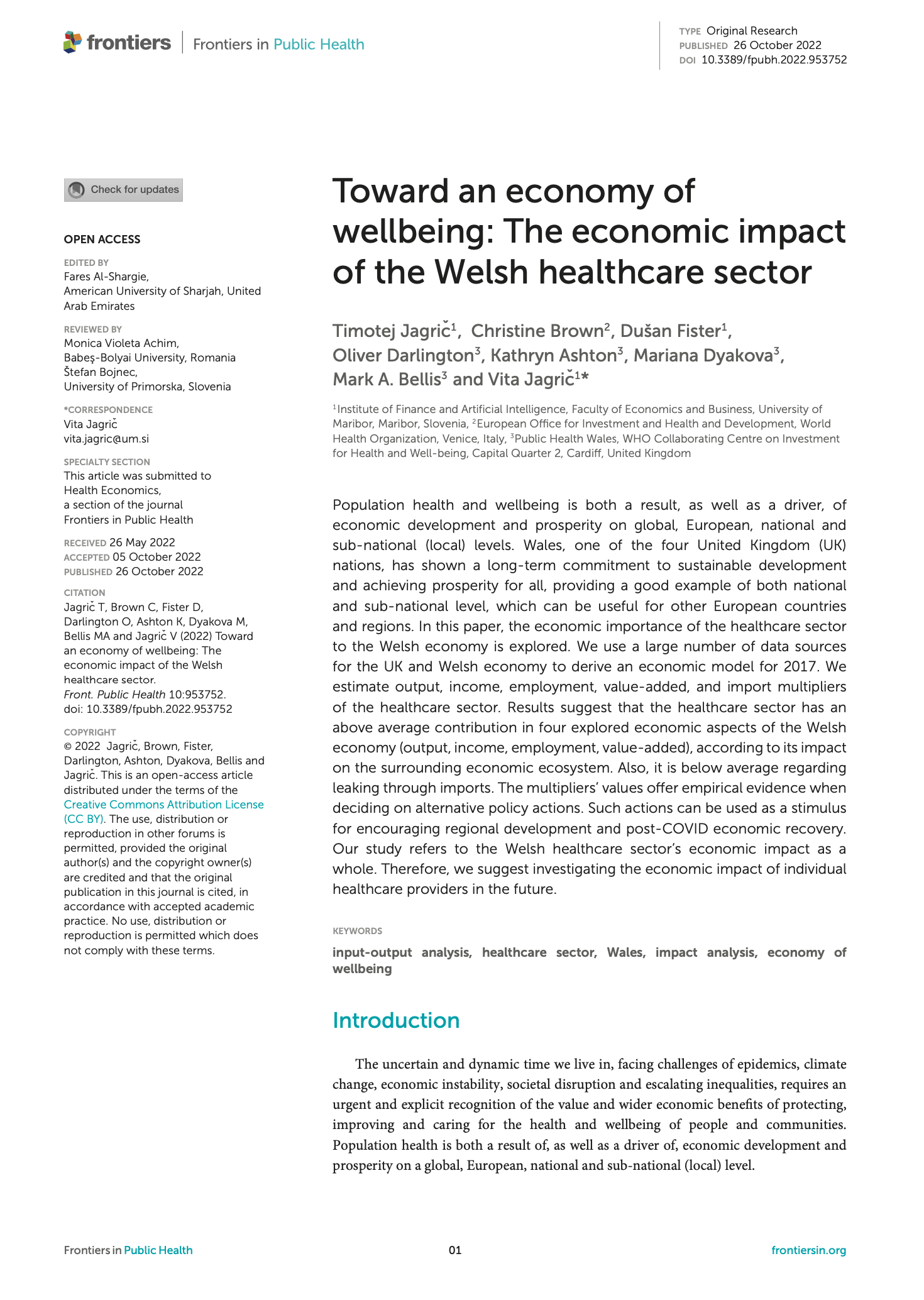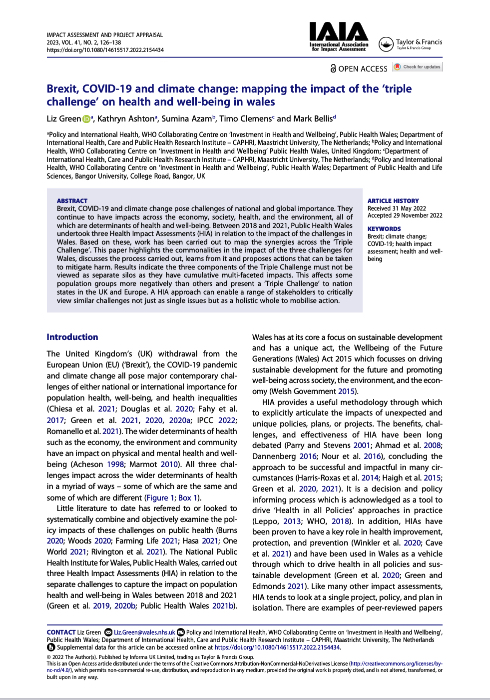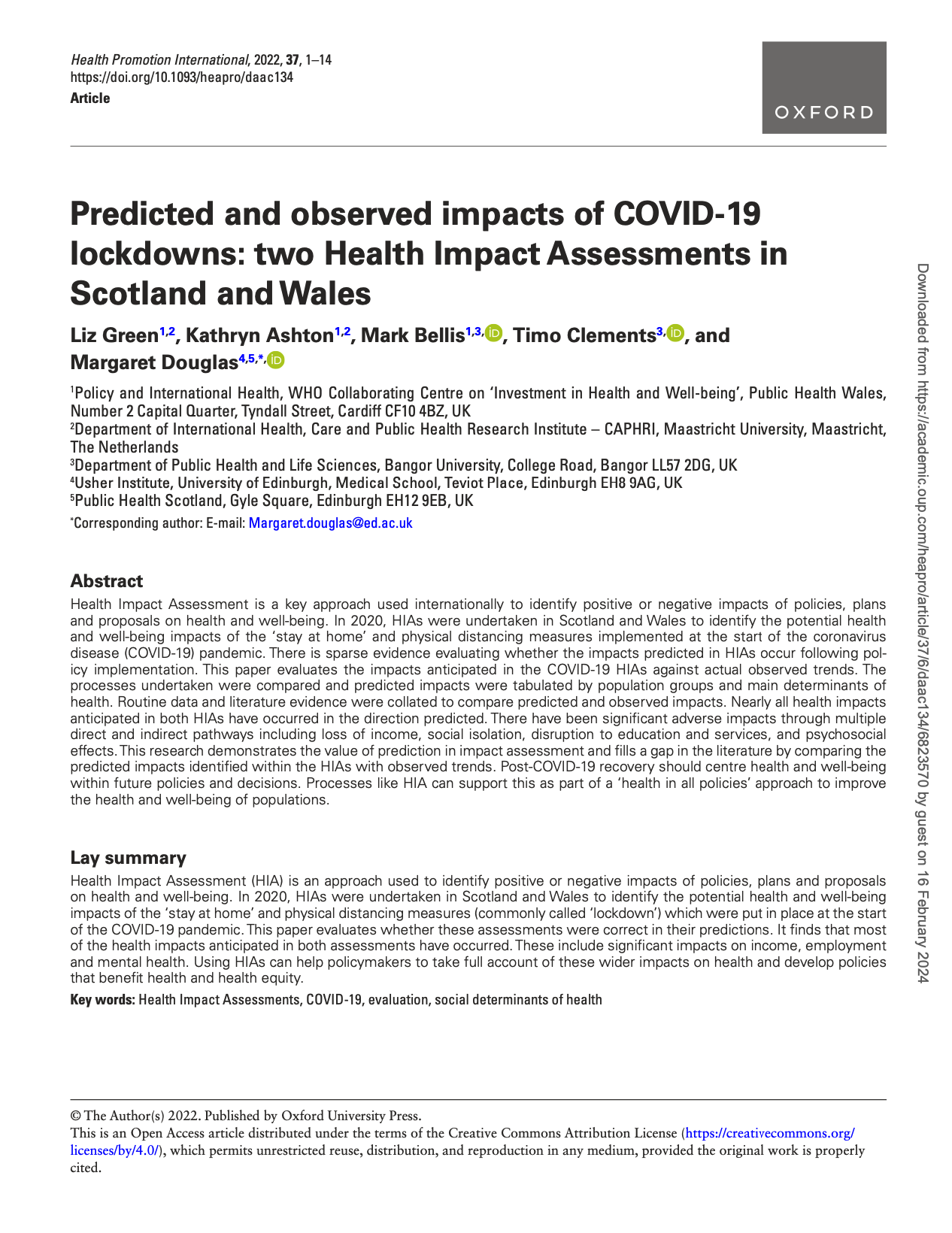Brexit, COVID-19 and climate change pose challenges of national and global importance. They continue to have impacts across the economy, society, health, and the environment, all of which are determinants of health and well-being. Between 2018 and 2021, Public Health Wales undertook three Health Impact Assessments (HIA) in relation to the impact of the challenges in Wales. Based on these, work has been carried out to map the synergies across the ‘Triple Challenge’. This paper highlights the commonalities in the impact of the three challenges for Wales, discusses the process carried out, learns from it and proposes actions that can be taken to mitigate harm. Results indicate the three components of the Triple Challenge must not be viewed as separate silos as they have cumulative multi-faceted impacts. This affects some population groups more negatively than others and present a ‘Triple Challenge’ to nation states in the UK and Europe. A HIA approach can enable a range of stakeholders to critically view similar challenges not just as single issues but as a holistic whole to mobilise action.
- Year of publication:
2022
- Date added to website:
2023-03-15
- Add URL link:
https://doi.org/10.3390/ijerph192013367
- Add image:

- Authors::
Liz Green, Kathryn Ashton , Lee Parry-Williams, Mariana Dyakova, Timo Clemens, Mark A. Bellis
Public health institutes have an important role in promoting and protecting the health and well-being of populations. A key focus of such institutes are the wider determinants of health, embracing the need to advocate for ‘Health in All Policies’ (HiAP). A valuable tool to support this is the health impact assessment. This study aims to support public health institutes to advocate more successfully for the use of health impact assessments and HiAP in order to promote and protect health, well-being and equity. During July 2021, a quantitative online survey was undertaken across international networks with 17 valid responses received. Semi-structured interviews were also administered with nine expert representatives and analysed thematically. In total, 64.7% (n = 11) of survey respondents were aware of health impact assessments and 47.1% (n = 8) currently conducted health impact assessments. It was noted that there are differing approaches to HIAs, with a need for a clear set of standards. Barriers to use included lack of knowledge, training and resources. Overall, 64.7% (n = 11) of survey respondents would like to do more to develop knowledge and capacity around health impact assessments. The results from this study can serve as a platform to help build knowledge, networks and expertise, to help support a ‘Health in All Policies’ approach and address inequalities which exist in all societies.
Health Impact Assessment is a key approach used internationally to identify positive or negative impacts of policies, plans and proposals on health and well-being. In 2020, HIAs were undertaken in Scotland and Wales to identify the potential health and well-being impacts of the ‘stay at home’ and physical distancing measures implemented at the start of the coronavirus disease (COVID-19) pandemic. There is sparse evidence evaluating whether the impacts predicted in HIAs occur following policy implementation. This paper evaluates the impacts anticipated in the COVID-19 HIAs against actual observed trends. The processes undertaken were compared and predicted impacts were tabulated by population groups and main determinants of health. Routine data and literature evidence were collated to compare predicted and observed impacts. Nearly all health impacts anticipated in both HIAs have occurred in the direction predicted. There have been significant adverse impacts through multiple direct and indirect pathways including loss of income, social isolation, disruption to education and services, and psychosocial effects. This research demonstrates the value of prediction in impact assessment and fills a gap in the literature by comparing the predicted impacts identified within the HIAs with observed trends. Post-COVID-19 recovery should centre health and well-being within future policies and decisions. Processes like HIA can support this as part of a ‘health in all policies’ approach to improve the health and well-being of populations.
- Year of publication:
2022
- Date added to website:
2023-03-15
- Add URL link:
https://doi.org/10.3389/fpubh.2022.953752
- Add image:

- Authors::
Timotej Jagric, Christine Brown, Dušan Fister, Oliver Darlington , Kathryn Ashton , Mariana Dyakova , Mark A. Bellis and Vita Jagric
Population health and wellbeing is both a result, as well as a driver, of economic development and prosperity on global, European, national and sub-national (local) levels. Wales, one of the four United Kingdom (UK) nations, has shown a long-term commitment to sustainable development and achieving prosperity for all, providing a good example of both national and sub-national level, which can be useful for other European countries and regions. In this paper, the economic importance of the healthcare sector to the Welsh economy is explored. We use a large number of data sources for the UK and Welsh economy to derive an economic model for 2017. We estimate output, income, employment, value-added, and import multipliers of the healthcare sector. Results suggest that the healthcare sector has an above average contribution in four explored economic aspects of the Welsh economy (output, income, employment, value-added), according to its impact on the surrounding economic ecosystem. Also, it is below average regarding leaking through imports. The multipliers' values offer empirical evidence when deciding on alternative policy actions. Such actions can be used as a stimulus for encouraging regional development and post-COVID economic recovery. Our study refers to the Welsh healthcare sector's economic impact as a whole. Therefore, we suggest investigating the economic impact of individual healthcare providers in the future.



